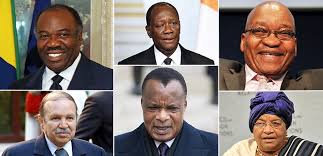The radical change in the seat of the Zimbabwean government last week raises several questions for the future of African politics. The coup signifies a mass movement against political disenchantment and the ruling class that may yet alter the course of African politics for the better.
On the twenty-first of November, the president of Zimbabwe resigned after thirty-seven years in office. President Mugabe buckled under the pressure from protesters, political parties and the military and ceded power to the nation. The coup was largely peaceful, but it may yet spark a radical change in the way leaders are viewed throughout the rest of Africa. Despite their diversity, the countries of Africa share a disturbing political trend: the same leaders have been in power for decades.
Most African heads of state represent a significantly older age cohort. According to CNN, the average age of the ten oldest African leaders is seventy-eight and a half years. In light of the fact that Africa is the youngest continent with a median age of nineteen and a half years, this fact illustrates a generational disconnect between African leaders and their constituents.
What we perceive as an elite power cartel based on class and social standing may in fact be based on age. Politics is dominated not by the rich, but in fact by the older generation. Older politicians find fraudulent and undemocratic ways to remain in politics, thereby keeping the younger generation locked out of the political arena. Political godfatherism is the most powerful example of this phenomenon.
According to Ojo et al, political godfatherism refers to the system of sponsorship whereby a powerful individual provides funding for a politician in exchange for access to government funds or influence over politics. Needless to say, this act creates an unfair advantage for both the godson and the godfather, undermining the basic democratic tenet of one person, one vote.
Political godfathers are often powerful citizens or politicians who are no longer in office. This is largely problematic because it consolidates the power of certain individuals and groups at the expense of all other Nigerian citizens.
In Nigeria, in particular, several notorious politicians have been in power since the immediate post-independence area. These ex-leaders, having served their terms, continue to interfere unwelcomed in politics through their sponsorship of other politicians and attempts to sway the system in their favour.
Indeed, Nigeria can stand to learn some lessons from Zimbabwe’s rejection of its antiquated leadership. The bureaucracy of older leaders is an epidemic that needs to be addressed here in Nigeria as well. The disconnect between the older power cartel and the mostly young population reflects a need for more representation and less corruption. We must work towards establishing a government that reflects and represents the needs of the people, not those of the decrepit power elite. May God Bless our beloved Country, Nigeria.
Funmilayo Adetokunbo A-A, a political and International Affairs Analyst, writes from Somerset, England, United Kingdom.
Join our twitter community :


